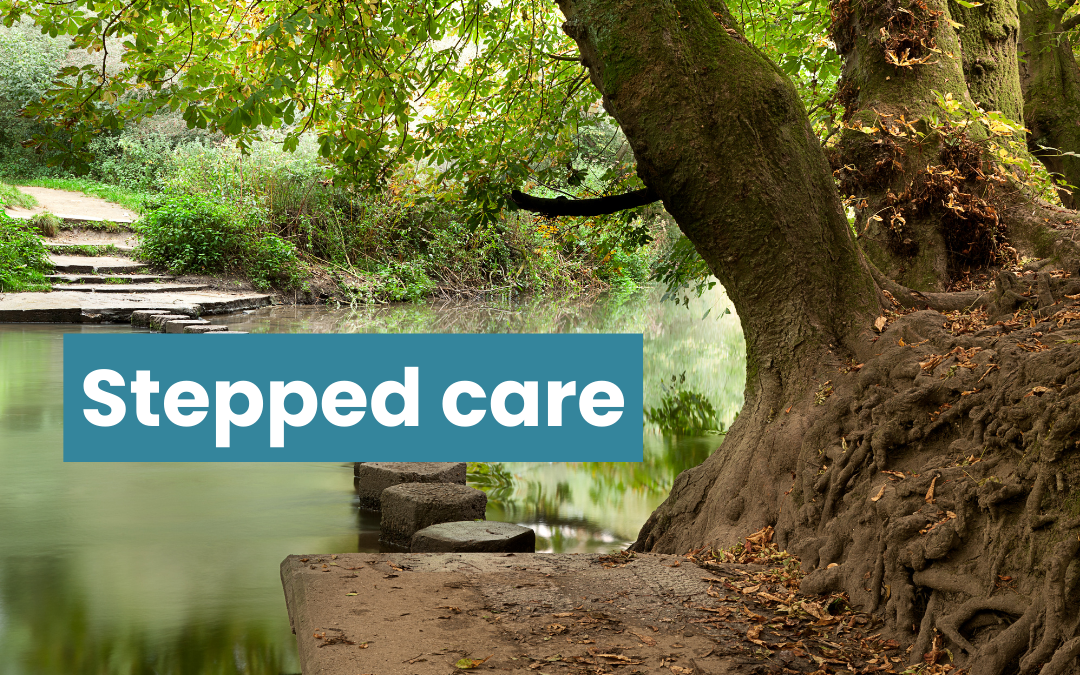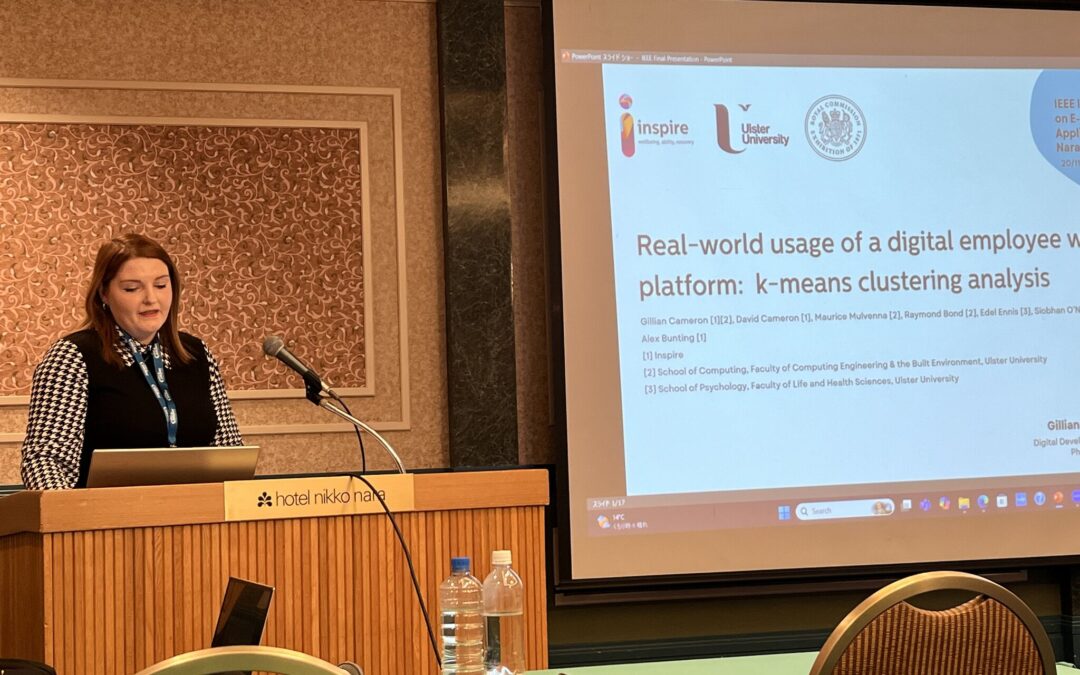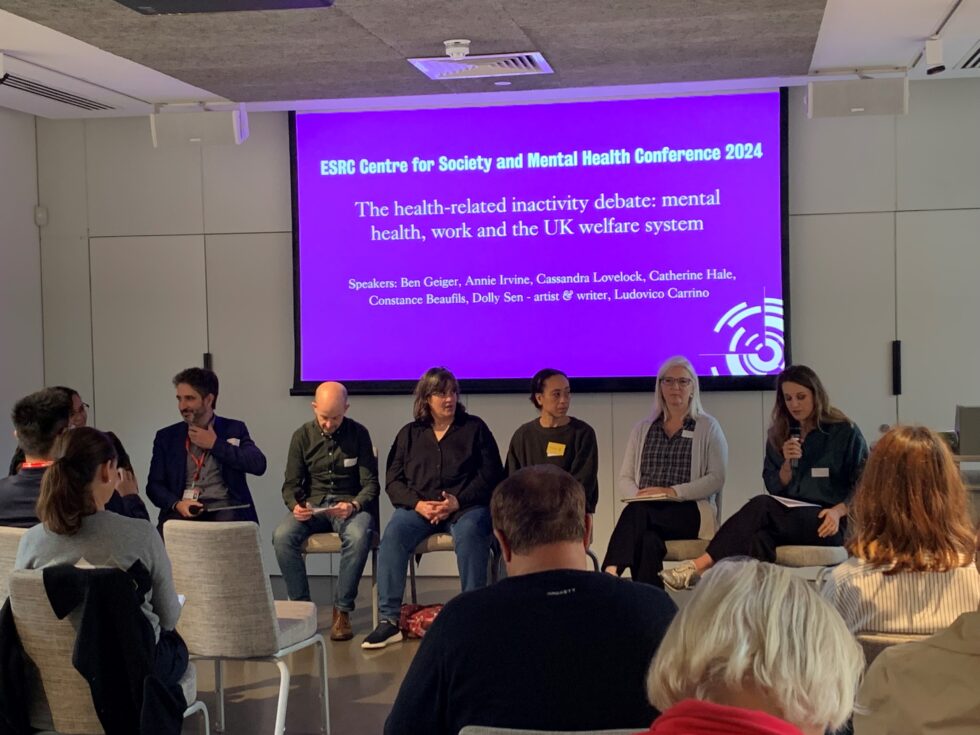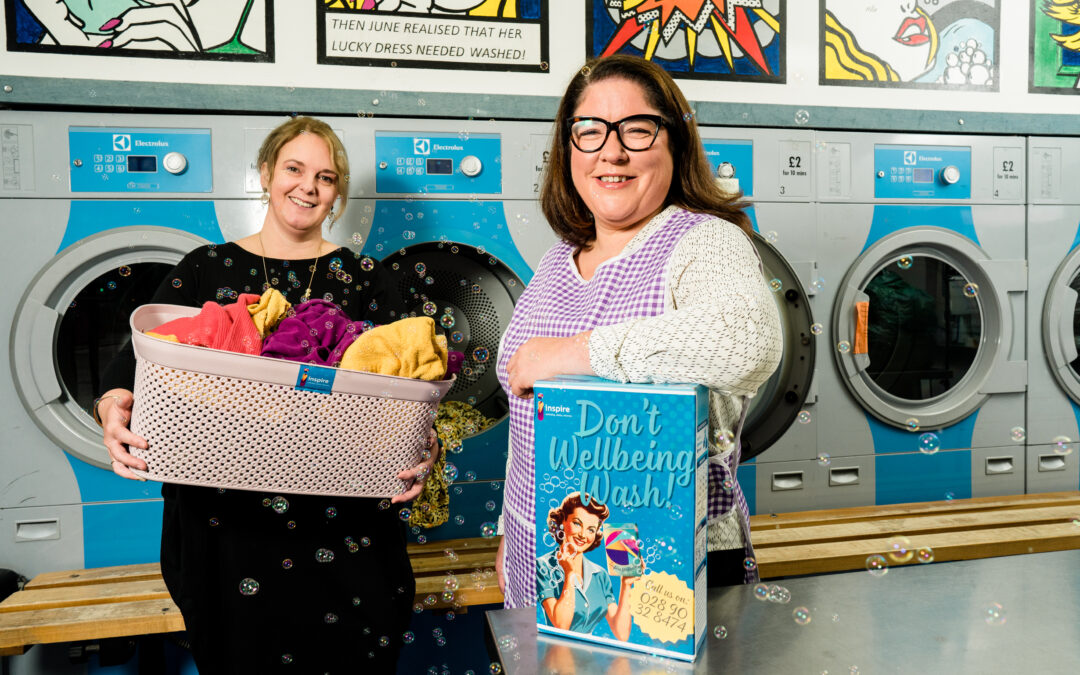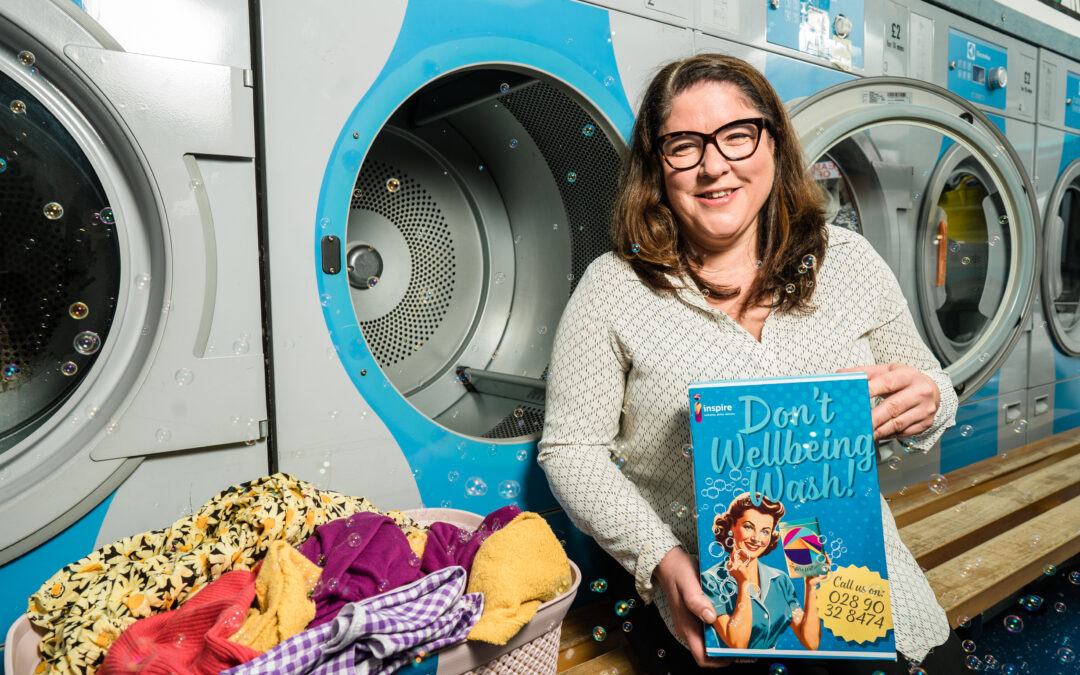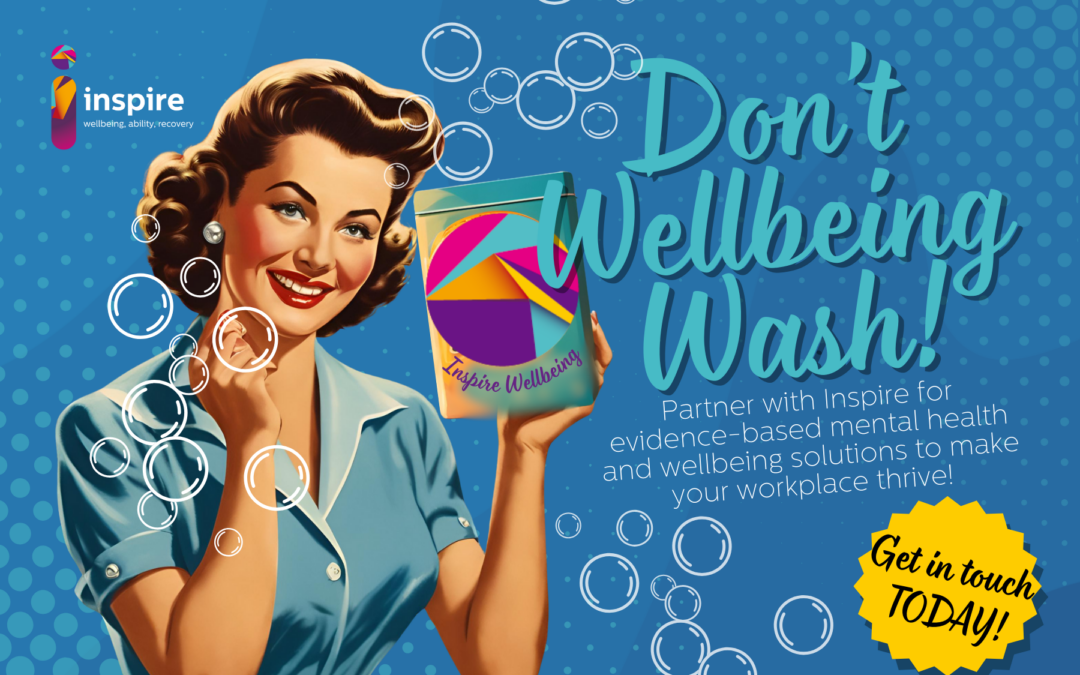Digital healthcare has become an important tool in the age of Covid-19 and Inspire is well placed to drive its continuing evolution, writes our Digital Services Executive and PhD researcher, Gillian Cameron.
Remote interventions in the healthcare field are by no means a Covid-era phenomenon. Digital self-help guides, telephone counselling and GP video appointments were useful elements within the sector prior to the onset of the pandemic, offering pathways better suited to need and easing the strain on an already stressed system, at least to some degree.
However, the changes to our lives necessitated by the outbreak of a novel coronavirus in 2020 accelerated the evolution of this corner of the online space and rendered it an essential component of treatment and support. This was especially true for mental health.
From generalised clinical settings to workplaces, digital healthcare offers potentially low-cost, efficient and scalable solutions. It continues to play a large role in our post-lockdown world, providing people with flexibility and ease of use, as well as an added sense of confidentiality and privacy. Significant portions of our lives are already spent on the internet and it’s hardly surprising, therefore, that a person’s health needs should also be addressed there.
In this context, things like cognitive behavioural therapy, stress management and mindfulness-based stress reduction courses have all shown promise. Indeed, it’s necessary to reconsider how a variety of care models might be integrated with web assets.
There are drawbacks, of course. The digital divide, already a challenge prior to the arrival of Covid-19, became more pronounced when much of daily life retreated behind a computer screen. Lots of people don’t own laptops, tablets or smart phones; they can’t connect to the internet. Others simply won’t engage with online resources. For those who do make use of these, there is a risk that they convince themselves, and the people around them, that they’ve done enough to address any issues they may have, even if, in reality, they require more targeted and sustained assistance.
The upsides, on the other hand, are undeniably exciting. Given the ongoing advances in technological capabilities, alongside digital health standards and regulation, Inspire is routinely presented with opportunities to excel. Our social enterprise, Therapeutic and Wellbeing Services, provides a range of interventions and training programmes, all of which are designed to help organisations, employees and students thrive. To do this, we deploy our expertise in stages. Firstly, all Therapeutic and Wellbeing Services customers – along with Inspire staff and the people using services managed by our charity arm – enjoy full access to the award-winning Inspire Support Hub.
A key part of our work, the Hub promotes physical, emotional and mental wellbeing through knowledge and learning. It equips users with tools and guidance that they can employ to monitor how they’re feeling and take action when necessary.
Over 11,000 individuals have signed up to the Hub since it first launched in 2019 and, during that time, they’ve logged in excess of 36,000 annual interactions. Three years ago, as the Covid-19 lockdowns took effect, the numbers using the website doubled.
Last year, to ensure that Inspire continues to showcase the latest innovations in digital wellbeing, we undertook a piece of research to determine the challenges people faced in utilising the Hub and the most effective methods of enhancing our services.
In April, having collated and analysed our findings, we rolled out the new version of this vital platform. Alongside aesthetic updates, we added fresh features to improve usability and accessibility. Crucially, clinically proven and evidence-led information sits at the heart of it all.
We know that our digital content complements and signposts to existing support. And it is at this point that the second strand of our stepped-care model comes into play. To ensure that the right help is available at the right time, we also focus on promoting our counselling services to all customers.
We are committed to this blended approach of digital and in-person care. If someone needs to speak to a professional counsellor, then they can do so. Indeed, we always encourage people to consider going down that route.
This continuum is Inspire’s unique selling point. Our web-based resources are often sufficient for people concerned about their own wellbeing but they are far from the end point. They are, instead, a gateway to more help.
To find out more about the Inspire Support Hub, as well as the other services offered by Inspire, contact enquiries@inspirewellbeing.org.
This article was first published in the most recent issue of NI Healthcare Review.
More from our blog
Menopause and work
The menopause is a natural biological process. It occurs when your ovaries age and naturally produce lower levels of reproductive hormones. The menopause may have a significant impact on home life and work performance. This can be unsettling, particularly if a particular role carries lots of responsibility. The hormonal changes…
Understanding Stepped Care and its role in workplace wellbeing
The stepped care model is a fundamental part of Inspire's workplace offering. So, what is it and why is it so important?
Winter wellbeing 2024
The festive season is here and we’re keen to highlight some wellbeing tips for now and the New Year. Head into 2025 in the best possible frame of mind. Switch off Technology allows us to be constantly connected to colleagues, family and friends. That is often a good thing but…
Reflections on IEEE eHealthCom 2024: Insights, Innovation, and Inspiration in Nara, Japan
Inspire’s Digital Development Lead, Gillian Cameron, reflects on her recent trip to Nara, Japan for the IEEE eHealthCom conference. Last week, I had the privilege of attending and presenting at the IEEE eHealthCom 2024 conference in Nara, Japan. This annual event brings together researchers, industry leaders, and policymakers to discuss…
Mental Health on the Agenda at King’s College London
Inspire’s Policy & Campaigns Office, Matthew Coyle, reflects on his recent trip to King’s College London and the knowledge gained at the ESRC Centre for Society and Mental Health’s annual conference. I had the privilege earlier this month of attending the ESRC Centre for Society and Mental Health’s third annual conference in…
Healthy Organisations Commit to Person-Centred Wellbeing
Employment takes up a good deal of our time. According to the Office of National Statistics, the average UK worker spends over 36 hours in work every week; in Ireland, that figure is 38.5. On World Mental Health Day, understand the effect that wellbeing washing can have on workers and…
On World Mental Health Day, Here’s How to Avoid Wellbeing Washing
As we count down to World Mental Health Day on 10th October, Inspire’s focus is very much on our ‘Don’t Wellbeing Wash’ campaign. Wellbeing washing is similar to green washing, its arguably more infamous cousin. It describes a company or organisational ethos that focus more on the illusion of staff…
World Mental Health Day: Don’t Wellbeing Wash
World Mental Health Day (WMHD), which takes place every year on 10th October, offers us all an opportunity to gather and talk about mental health, demonstrating to everyone that this is a subject worthy of open, honest discussion and explanation. In 2024, Inspire is marking WMHD by highlighting the important issue…
Government Action on Work-Life Balance a Positive Sign
The UK Government has announced plans to introduce new codes of practice for businesses, which are aimed at tackling burnout and codifying a right to switch off. This follows on from Labour’s campaign pledge to empower workers, providing them with the freedom to disconnect from their jobs outside regular hours and…
Line Managers are Key to Workplace Wellbeing
According to new research published by Queen’s University Belfast and the University of Nottingham, strong links exist between positive business performance and mental health training for line managers. Furthermore, the analysis of workforce practices suggests that recognising this, and acting on it, could save organisations millions every year. The study…
Workplace Conflicts Require Proactive Approach
Discord between colleagues is not unusual. The average workplace brings together individuals from different walks of life, people with distinct characteristics, objectives, points of view and ways of doing things. Quarrels are bound to develop from time to time. They can, however, have a significant impact on an organisation’s productivity,…
CIPD Conference Stresses Authentic, Empathetic Leadership
Inspire\'s Noelle Higgins, Business Development Manager – Therapeutic Services reflects on the recent CIPD conference and research. My colleague Jonathan Cody and I recently took the opportunity to head to the CIPD conference at the RDS, enjoying a day away from our e-mails and catching up with a range of…



